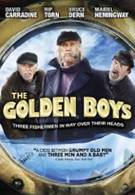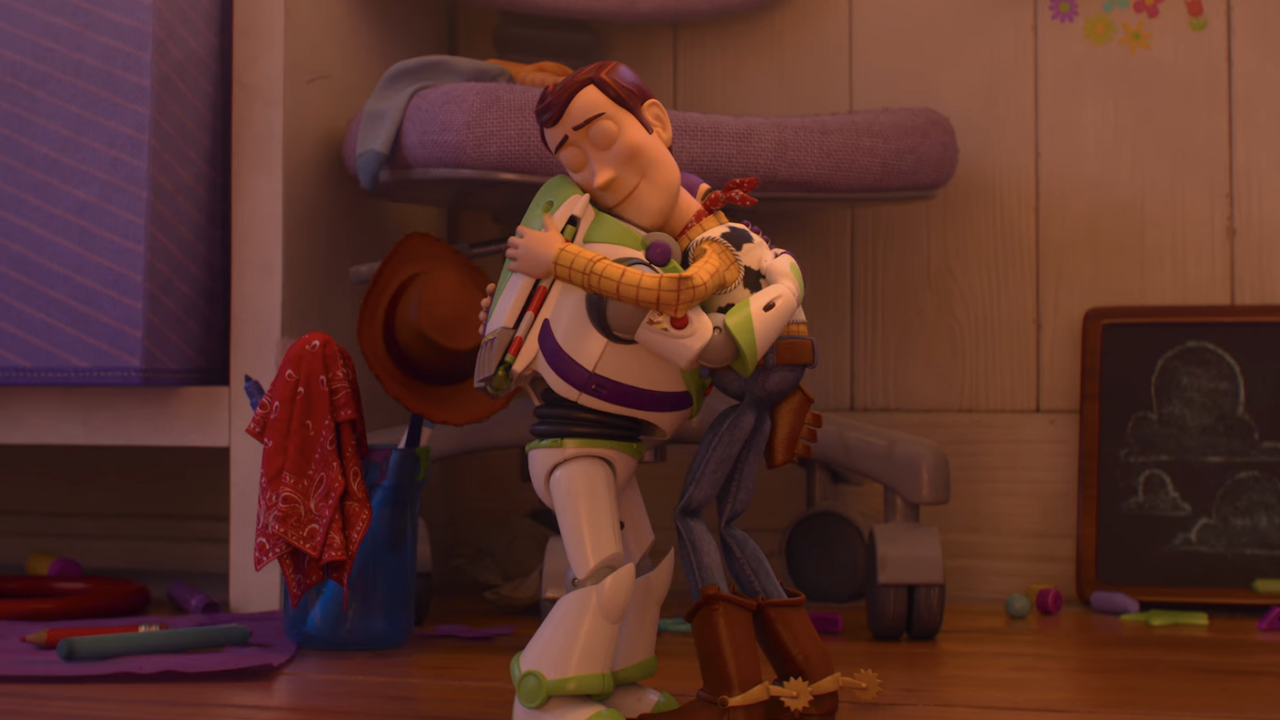If I were to tell you The Golden Boys is a period story set in 1905 Cape Cod starring David Carradine, Bruce Dern, and Rip Torn as three 70-something retired sea captains, there’s a pretty good chance you wouldn’t guess the genre as “romantic comedy.” Costume drama, sure. Some sort of late-Fall, Oscar-bait indie, perhaps. But hey, we live in the age of Viagra and 50 being the new 40, so why shouldn’t the geriatric set be able to find love, too? Kudos, then, to writer-director Daniel Adams for thinking outside the cookie-cutter, 20-something rom-com box. Unfortunately, The Golden Boys unfolds at a pace befitting its septuagenarian cast, which means if you decide to sit through this film, go ahead and apply for AARP membership. By the end credits, you’ll need it. Captains Zeb (Carradine), Perez (Dern), and Jerry (Torn) share a house in the quaint seaside town of Cape Cod, Massachusetts in 1905. The three have settled into the comfortable routine of long-time friends and inveterate bachelors, sharing the household chores and each other’s company with varying degrees of success. After an argument born of a sub-par meal and a cluttered house, the three hit upon a realization: they need a woman around to help keep things tidy. Naturally, the boys pool some money and hire a housekeeper who can…what’s that? They don’t do that at all? Instead they decide to place a classified ad so one of them can get married and the new wife can do all the work? Well…that doesn’t make any damn sense at all, does it? It’s generally not a good sign when the inciting incident of the story immediately conjures a simple solution that would negate the entire rest of the film.
Based on the novel Cap’n Eri by Joseph C. Lincoln, The Golden Boys is the sort of movie you’d expect your mother or grandmother to recommend, probably describing it as “the sort of decent movie those Hollywood people never make anymore.” In some ways, Golden Boys does feel like a throwback to a simpler time, and not just in setting. With a script focused heavily on character, it’s a far cry from the modern romantic comedy, with nary a trace of blue humor or needlessly convoluted plot twists to distract from shallow, uninteresting characters. No sir, The Golden Boys puts its uninteresting characters front and center. Okay, okay, that’s unfair. It’s not so much that Zeb, Perez, and Jerry aren’t interesting, it’s just that they’re dropped into a story with pacing so glacial that I witnessed a half-dozen species go extinct during my viewing. This is the sort of movie where you look at your watch two hours in and realize it’s actually only been 35 minutes. The opening sequence sets the stage, dragging on damn near 10 minutes as the boys bicker and decide which of them is to be saddled with matrimony. It’s a scene that highlights the film’s greatest asset – the performances of three talented, veteran actors – even as it buries that asset under plodding scene after interminable, plodding scene.
And it is great to see these three on-screen together. Dern gets to play an uncharacteristically nice guy, Torn just gets to play goofy, and the recently departed Carradine shines in the film’s only semi-interesting role. His blossoming romance with Mariel Hemingway’s Martha is nothing we haven't seen before, but it's sweet and sincere and if there’s a reason to see The Golden Boys, it’s primarily for these moments. God knows it’s a better cinematic farewell than Raul Julia got (that’d be playing M. Bison in the painful 1994 Street Fighter film, for those of you lucky enough to have missed it).
The romance between Zeb and Martha may be the main focus of the film, but Golden Boys also includes a convoluted, unnecessary sub-plot about the town’s teetotaler religious elements sparring with the unscrupulous owner of a newly opened billiard hall. Without knowing anything about the novel upon which the film is based, I would imagine this plotline is probably lifted from that source material. Unfortunately, all it does here is take time away from the Zeb/Perez/Jerry/Martha storyline, and while that storyline isn’t all that great, it’s vastly more interesting than anything in the billiard-hall B-plot.
In fact, that superfluous subplot is emblematic of an overall problem with the entire film. The Golden Boys feels less like a feature film and more like a random episode of a Lifetime period drama about life in turn-of-the-century Cape Cod. Incidentally, “Lifetime period drama” is the phrase most likely to make me switch the channel as quickly as possible, so I’m probably just not the right audience for The Golden Boys. It’s sweet natured and means well, but like an anecdote from an attention-starved grandpa, it takes forever to go nowhere in particular, even though you feel bad for saying so. The Golden Boys DVD boasts a single special feature, a 40-minute featurette called “From Zen Master to Shipmaster: The Life and Career of David Carradine.” While much of the focus is on the late Carradine, there’s enough generic making-of material to suggest it was originally going to be a broader-based look at the film as a whole and was likely restructured after the actor’s death. This is a boon, because the resulting documentary is considerably more interesting than the film itself. I’d even recommend renting the film just for this featurette if you’re at all interested in Carradine or film history.
While plenty of time is spent on Carradine discussing his fellow actors and vice versa, “Zen Master” really shines in the segments that are just Carradine recalling his long career. Carradine spins tales about growing up the son of actor John Carradine, Ingmar Bergman and a dead horse, why Uma Thurman is one of the greats because she “never lets you catch her acting,” and how he turned down a villainous role in The Cowboys because he didn’t want to be the guy who killed John Wayne (appropriately enough, the role went to his Golden Boys co-star, Bruce Dern). It’s a fascinating look at a fascinating performer and a worthy remembrance in light of his recent passing.
Your Daily Blend of Entertainment News

